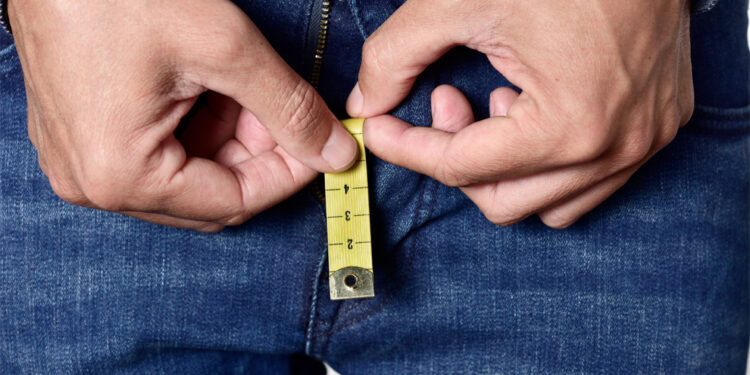The fascination—and often anxiety—surrounding penis size is fueled by societal expectations, media influence, and personal insecurities. However, size varies significantly among individuals and is determined by multiple factors, ranging from genetics and hormonal levels to environmental influences and lifestyle choices.
Understanding these factors can help provide a more realistic and healthy perspective on the subject.
1. Genetics: The Primary Determinant of Penis Size
Just like height, eye color, and body shape, penis size is largely determined by genetic inheritance. The genes from both parents influence penile growth, making it a highly individualized trait.
How Genetics Influence Penis Size
- The androgen receptor (AR) gene, located on the X chromosome (inherited from the mother), plays a crucial role in penile development.
- This gene determines how the body responds to androgens like testosterone, which are essential for the growth of male sex organs.
- Variations in these genetic expressions explain why siblings can have different penis sizes, despite sharing the same parents.
2. Hormonal Levels: The Role of Testosterone and DHT
Hormones—particularly testosterone and dihydrotestosterone (DHT)—play a significant role in penile development. These hormones influence growth during two critical phases:
Fetal Development:
- During pregnancy, testosterone stimulates the formation of the penis.
- A lack of testosterone or DHT during this period can lead to underdeveloped genitalia.
Puberty:
- A spike in testosterone during puberty further stimulates penile growth.
- Hormonal imbalances or endocrine disorders can impact penis size.
- Conditions like hypogonadism, where the body doesn’t produce enough testosterone, may lead to smaller-than-average penile growth.
3. Nutrition: How Diet Affects Development
Nutrition plays a crucial role in overall growth and development, including penis size. Proper nutrition supports hormonal balance and organ formation, while malnutrition can disrupt normal sexual development.
Key Nutritional Influences on Penis Growth
- Adequate nutrition during pregnancy and early childhood is essential for proper development.
- Malnutrition can negatively impact androgen receptors, affecting penile growth.
- Some studies suggest that soy formula is linked to a faster increase in penile length during infancy, though further research is needed.
4. Medical Conditions That Can Affect Penis Size
Certain medical conditions and disorders can lead to smaller penis size or abnormal development.
Common Medical Conditions Impacting Penis Size:
✔ Micropenis: A condition where the penis is significantly smaller than the average size due to hormonal deficiencies or genetic anomalies.
✔ Endocrine Disorders: Diseases affecting hormone production (e.g., pituitary gland disorders) can impact penile development.
✔ Testosterone Deficiency: A lack of testosterone during puberty can hinder penile growth.
When to Seek Medical Advice
If there are concerns about abnormal penile growth, consulting a healthcare professional is essential. Treatments like hormone therapy may be recommended in certain cases.
5. Environmental Factors: The Hidden Risks of Chemical Exposure
Research suggests that environmental toxins and pollutants can negatively impact penile development, especially when exposure occurs during fetal development.
Common Environmental Risks:
🚨 Phthalates (Found in Plastics): Linked to reduced penile size in infants exposed during pregnancy.
🚨 Pesticides and Pollutants: Can disrupt hormonal balances, leading to growth issues.
🚨 Hormone-Disrupting Chemicals: Found in plastics, food packaging, and some personal care products.
To minimize risks, it’s important to reduce exposure to harmful chemicals, particularly for pregnant women and young children.
Final Thoughts: Does Penis Size Really Matter?
At the end of the day, penis size does not define masculinity or sexual ability. What truly matters is overall health, confidence, and well-being.
Rather than fixating on size, men should focus on:
✅ Maintaining a healthy lifestyle.
✅ Reducing exposure to harmful environmental factors.
✅ Prioritizing self-confidence and emotional well-being.
Understanding the scientific factors behind penis size can help break the unrealistic societal pressures and misconceptions surrounding masculinity.
Stay informed, stay confident, and remember—health is more important than size.


